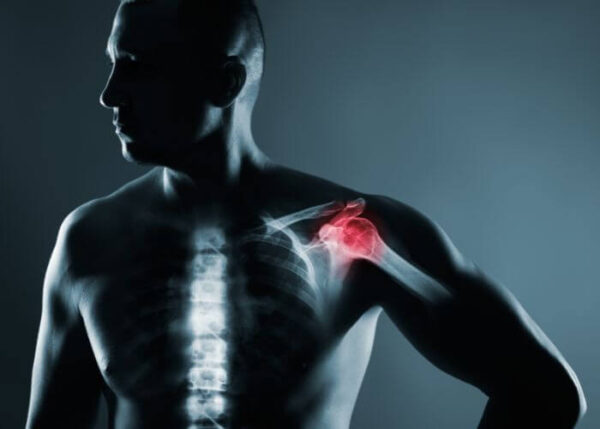Suprascapular Nerve Decompression Doctor

Are you experiencing pain and weakness in the back of your shoulder? If so, you may have a shoulder condition called suprascapular neuropathy (SSN) is also called suprascapular nerve entrapment. SSN can cause pain, weakness and eventually nerve dysfunction in your shoulder that requires surgery. Suprascapular nerve decompression can relieve pain and facilitate functional muscle recovery of the shoulder joint. Doctor Riley J. Williams, orthopedic shoulder surgeon, serving Manhattan, Brooklyn, New York City, NY and surrounding areas, has extensive experience in performing suprascapular nerve decompression. Contact Dr. Williams’ team today!
What is suprascapular nerve decompression?
Suprascapular nerve decompression is a minimally invasive surgery performed arthroscopically under regional anesthesia to release pressure on the suprascapular nerve. The suprascapular nerve runs through the scapula (shoulder blade) and sends motor and sensory to the rotator cuff muscles that for movement of the shoulder joint. Compression or pinching of the suprascapular nerve often leads to suprascapular neuropathy (nerve dysfunction). Suprascapular neuropathy present with posterior shoulder pain and weakness noted in the posterior shoulder muscles (infraspinatus and/or supraspinatus muscles). Surgery to decompress a compressed suprascapular nerve can relieve pain and facilitate functional muscle recovery of the shoulder joint. Dr. Riley J. Williams, orthopedic shoulder surgeon, serving Manhattan, Brooklyn, New York City, NY and surrounding areas, has extensive experience in performing suprascapular nerve decompression and other shoulder surgeries.

What is suprascapular neuropathy?
Suprascapular neuropathy (SSN) is also called suprascapular nerve entrapment. The suprascapular nerve originates in the back of the neck and runs through the shoulder blade. This nerve sends sensory and motor signals to the supraspinatus and infraspinatus muscles of the rotator cuff. These muscles move the shoulder joint and the arm. Suprascapular nerve compression is associated with sports that require repetitive overhead arm motion including swimming and volleyball. Direct trauma such as a fall on the shoulder can also cause SSN. Suprascapular neuropathy is a rare injury that occurs in approximately .04% of patients with shoulder pain. Undiagnosed SSN can be a cause of continued shoulder pain after shoulder procedure performed for other shoulder problems including rotator cuff tear, labrum tears and shoulder impingement.
How is suprascapular nerve decompression performed?
The surgery is performed with sedation and regional anesthesia. The procedure is done arthroscopically in an outpatient setting; most patients go home the same day as the surgery. Arthroscopic surgery requires very small incisions at the top and sides of the shoulder. Dr. Williams inserts an arthroscope, which is a fiberoptic viewing lens, and surgical tools in these incisions to complete the procedure. The arthroscope projects images of the shoulder and nerve onto a monitor. Nerve is decompressed is achieved by removing all compressing structures around the nerve (ligaments, cysts). Decompressing the nerve alleviate pains and weakness in the shoulder girdle.
How is suprascapular nerve decompression performed?
The surgery is performed with sedation and regional anesthesia. The procedure is done arthroscopically in an outpatient setting; most patients go home the same day as the surgery. Arthroscopic surgery requires very small incisions at the top and sides of the shoulder. Dr. Williams inserts an arthroscope, which is a fiberoptic viewing lens, and surgical tools in these incisions to complete the procedure. The arthroscope projects images of the shoulder and nerve onto a monitor. Nerve is decompressed is achieved by removing all compressing structures around the nerve (ligaments, cysts). Decompressing the nerve alleviate pains and weakness in the shoulder girdle.
How long does it take to recover?
The patient typically goes home within two hours of the procedure. The arm will be in a sling for approximately a week after the surgery. To rehabilitate the shoulder, physical therapy starts after the first week to help regain range of motion and strength. Most patients should plan to do PT twice a week for 8 weeks. Pain relief is noted soon after surgery; muscle strength recovery may take months to improve after suprascapular nerve decompression.
For additional resources on suprascapular nerve decompression or to have your shoulder pain evaluated, please contact the office of Dr. Riley J. Williams, orthopedic shoulder surgeon serving Manhattan, Brooklyn, New York City, NY and surrounding areas.
